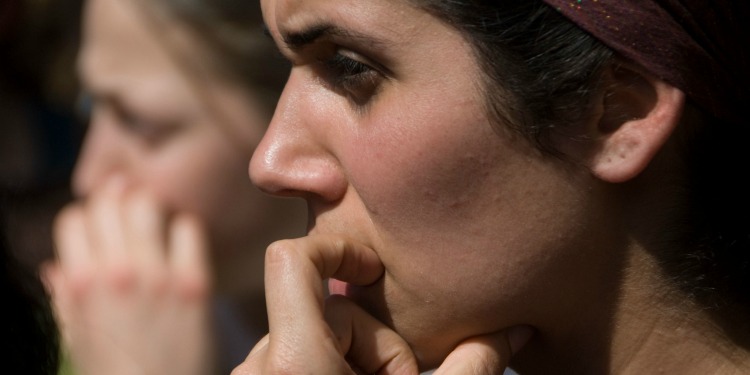The First Step to Change
The Fellowship | September 16, 2019

“I have seen these people,” the LORD said to Moses, “and they are a stiff-necked people.” — Exodus 32:9
The Hebrew month of Elul, which means “search,” is a time of intense soul-searching and repentance in preparation for the High Holy Days of Rosh Hashanah and Yom Kippur. Elul is also a time to begin the process of asking for forgiveness for wrongs done to others. This is one of 13 devotions on repentance and forgiveness. To learn more about the shofar, which is blown every weekday during Elul¸ download our complimentary Bible study.
In 1937, Frank Lloyd Wright built a home for a prestigious businessman. One rainy evening, as the businessman was entertaining colleagues, the roof began to leak directly over the businessman’s chair at the head of the table. The man called Wright on the phone and said, “Frank, you built us a beautiful house, but the roof leaks. I’m entertaining a bunch of guests right now and the water is dripping directly on my head!” Wright replied, “Well, then move your chair.”
As it is with leaky roofs, so it is with our lives; if we don’t take responsibility for our errors, we cannot fix them.
In Exodus Chapter 32, Moses was on Mount Sinai receiving the Ten Commandments and the Law from God when the Israelites below sinned with the golden calf. God told Moses that he must go down the mountain immediately because the people had sinned. God called them a “stiff-necked people” whom He planned to destroy and begin a new nation from Moses instead.
After pleading for the people’s forgiveness and attaining it, Moses went down the mountain and saw what should have been no surprise to him — the people were worshiping the golden calf. Moses was incensed and, in his anger, he broke the God-given Tablets that he had received on Sinai.
What’s going on here? Why did Moses seem so shocked and angry when he saw the children of Israel doing exactly what God already told him they were doing?
The Jewish sages teach that what upset Moses so much was, as Scripture tells us, the people didn’t just fall into sin; they were dancing and rejoicing in their sin. They didn’t look at Moses with the Tablets and say, “Oh, we really messed up”; rather they continued to celebrate. At that point, Moses had no choice but to smash the Tablets. It was the only way to wake the people up to the fact that they had fallen and needed to repent. It was the only way to get their attention so that they might take responsibility for their actions.
The sages teach that when God called the children of Israel “stiff-necked,” it meant that they had sinned and refused to repent. They had made a mistake but would not admit it or take responsibility for it. When people don’t own up to their mistakes, they cannot fix them.
The first step in repentance is taking responsibility for our actions. So many people go through life blaming their parents or their circumstances or anything at all in order to justify their wrongful behavior. But all that does is keep that person stuck in the muck. As difficult as it may be, we must own up to our actions. Only then can there be rectification, forgiveness, and grace.
